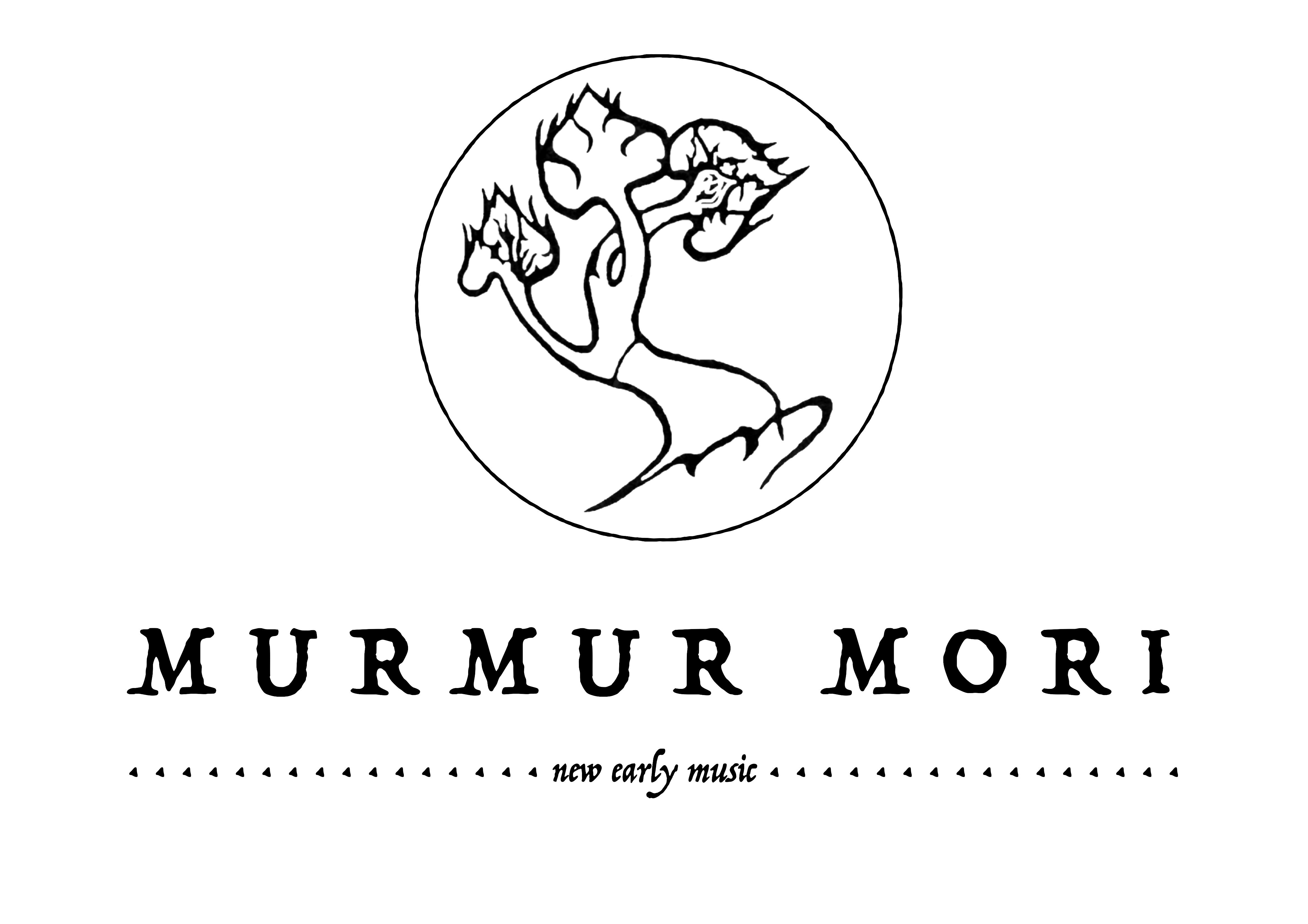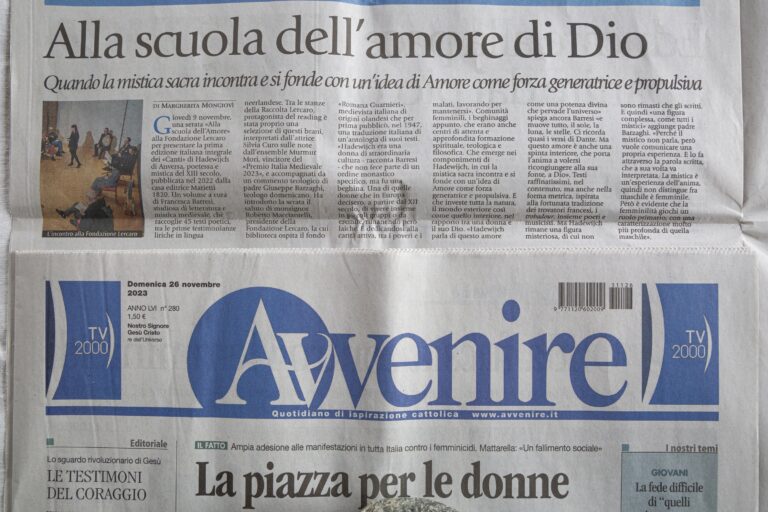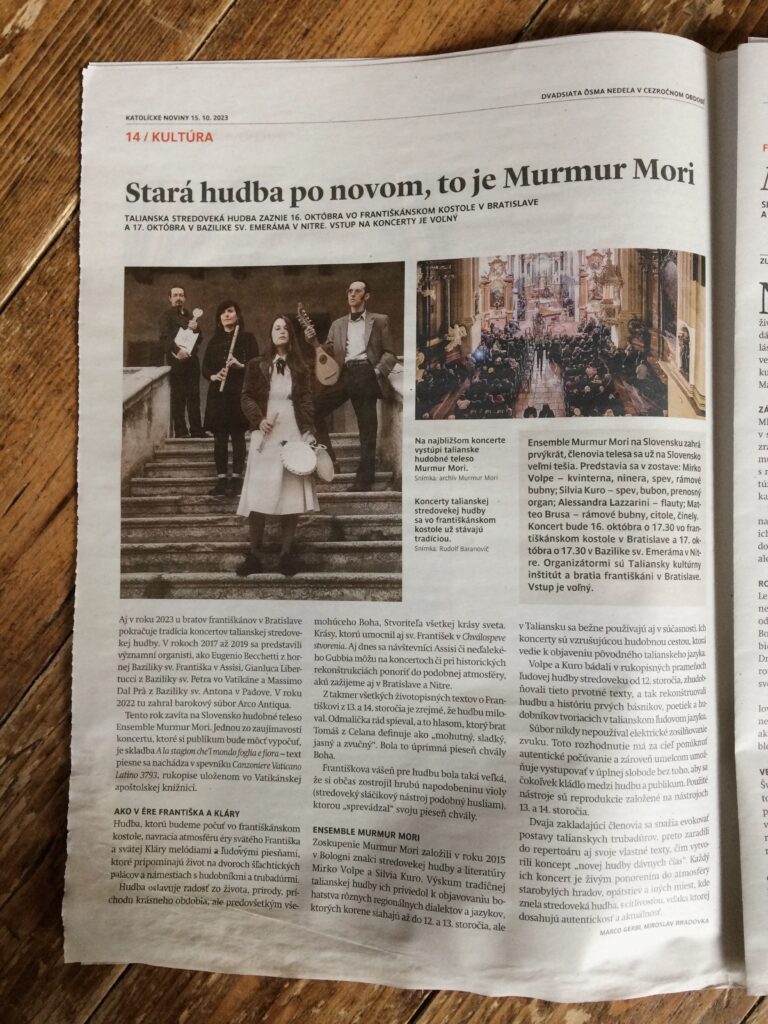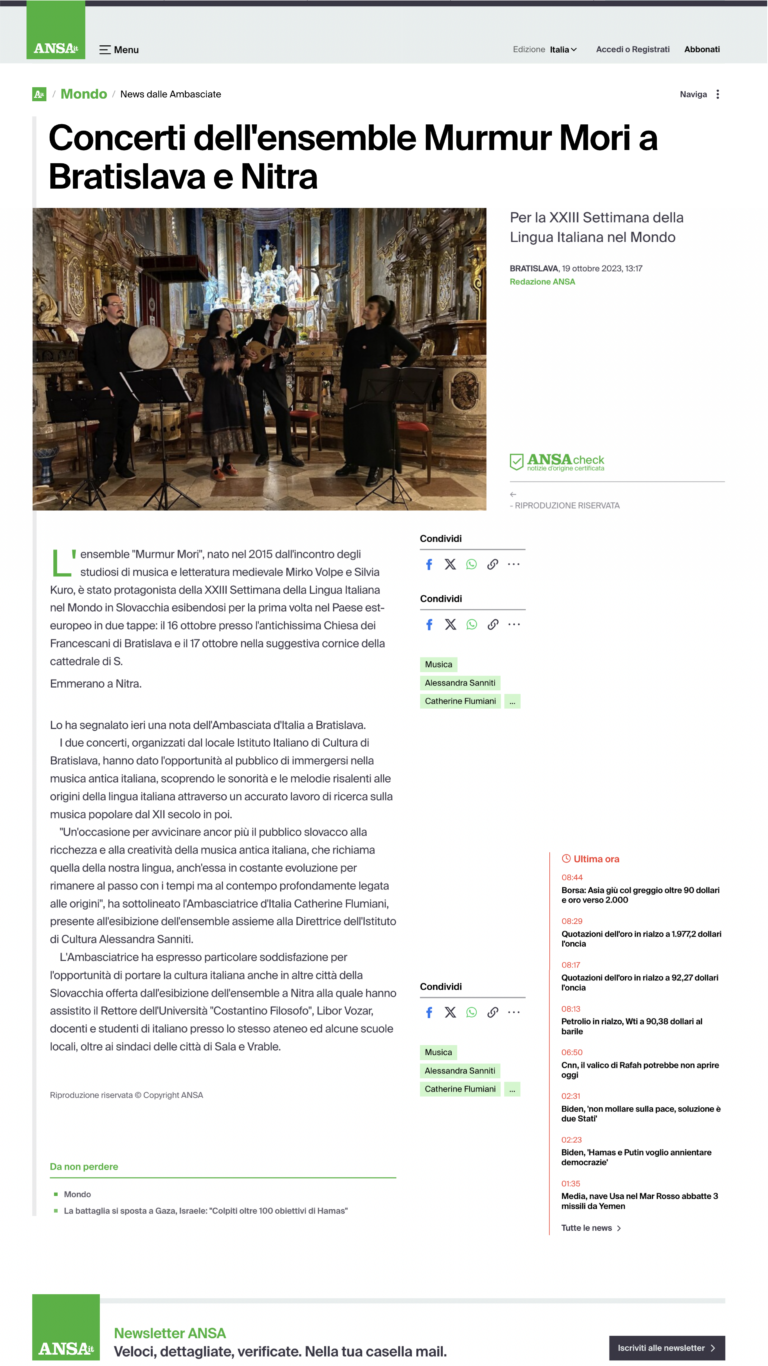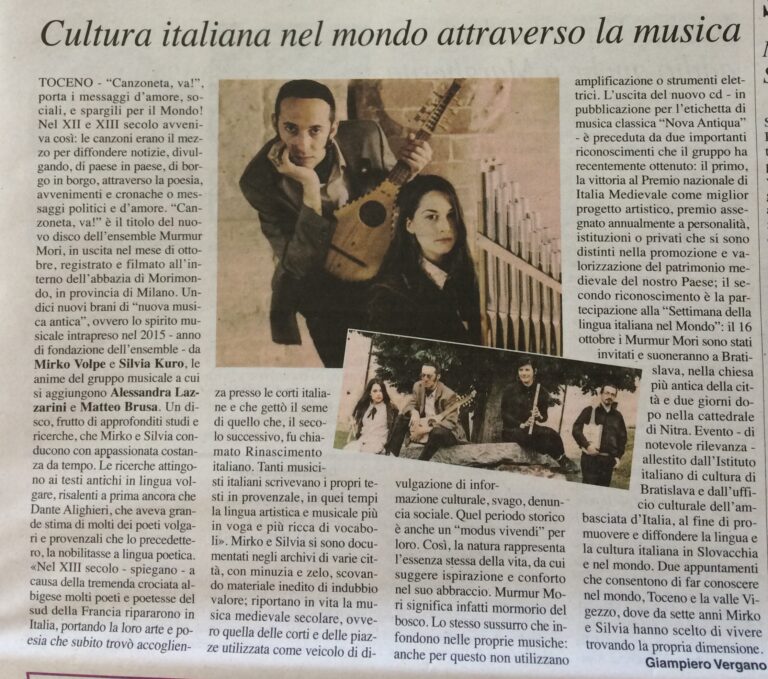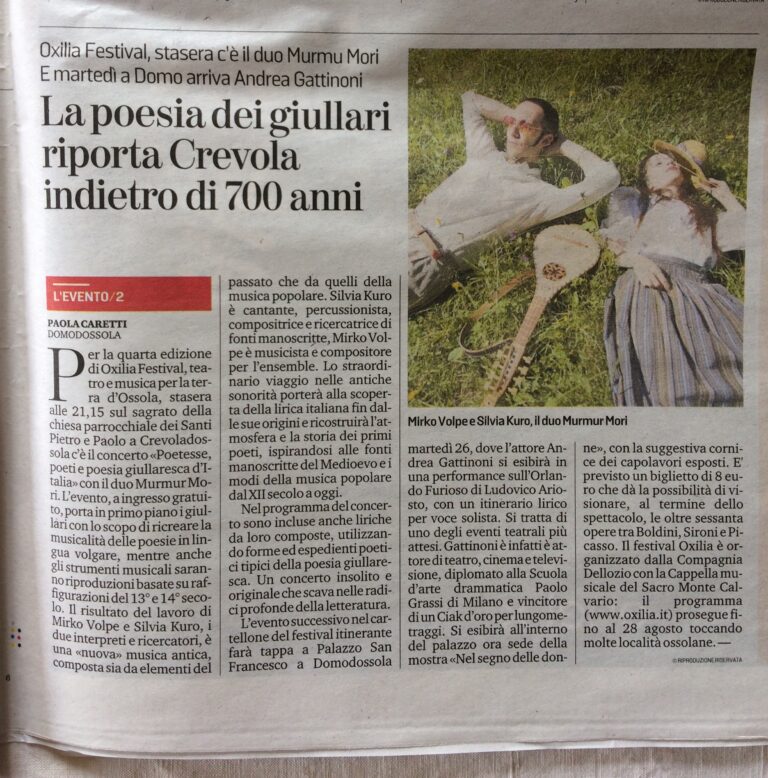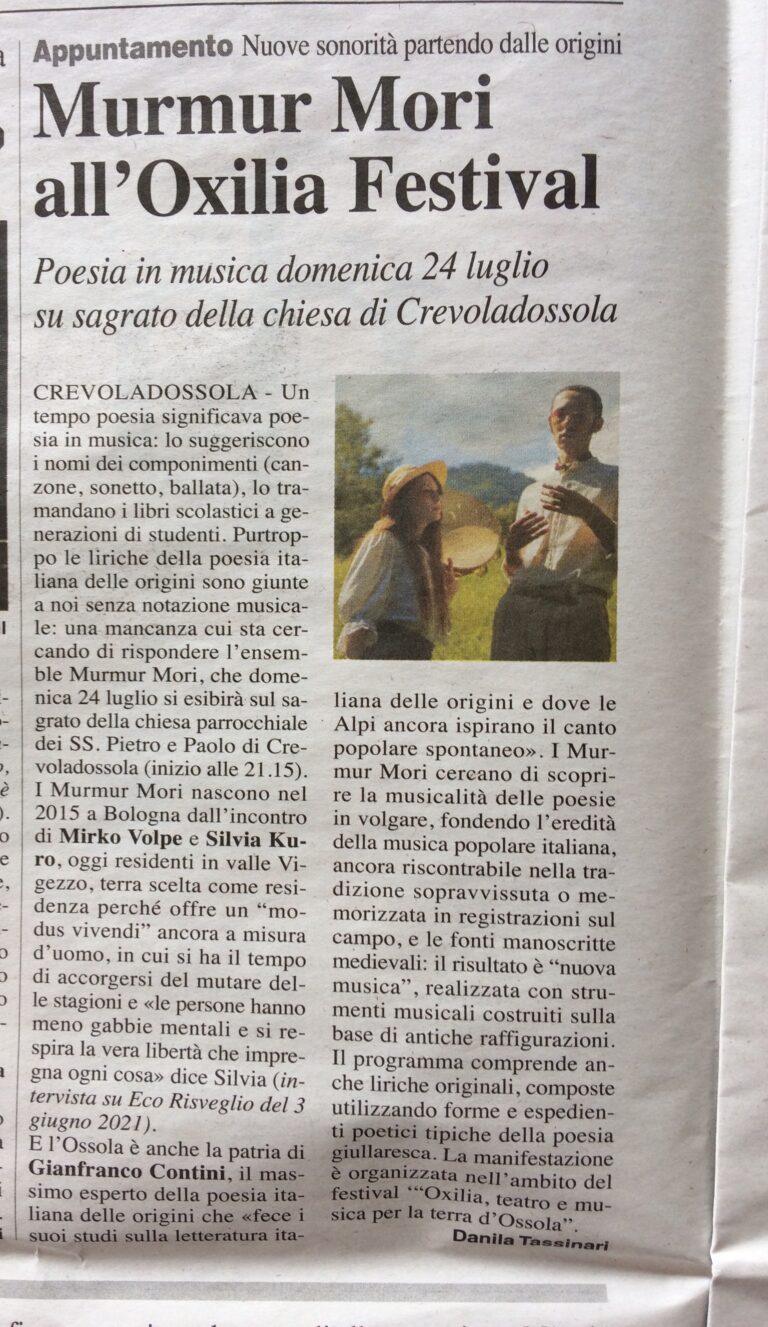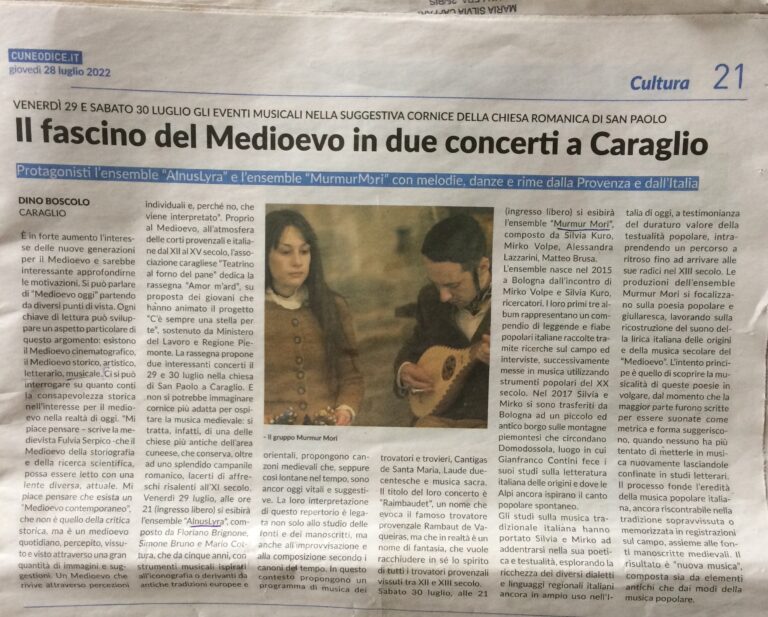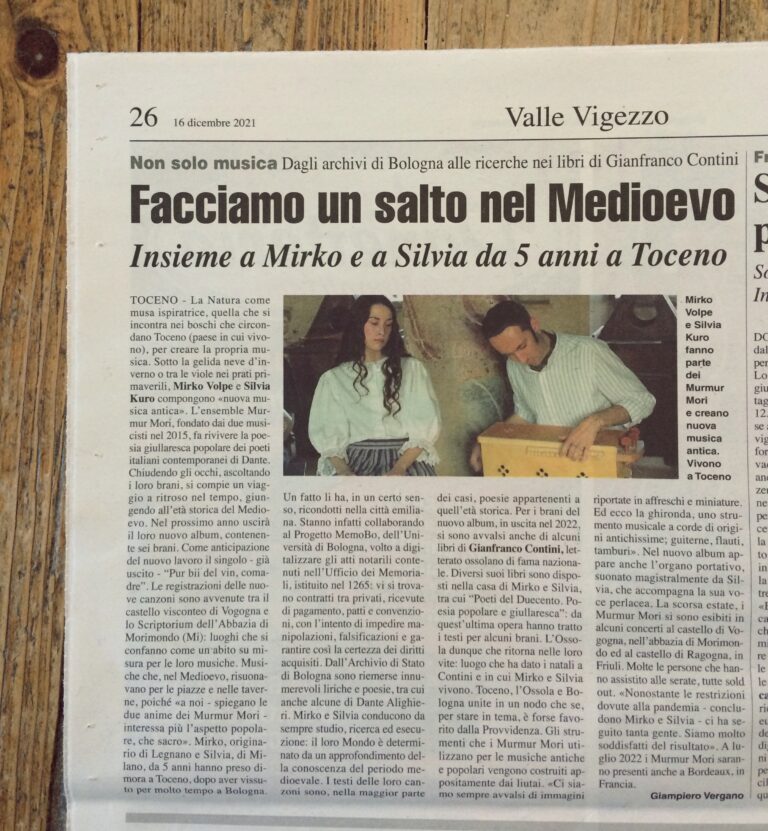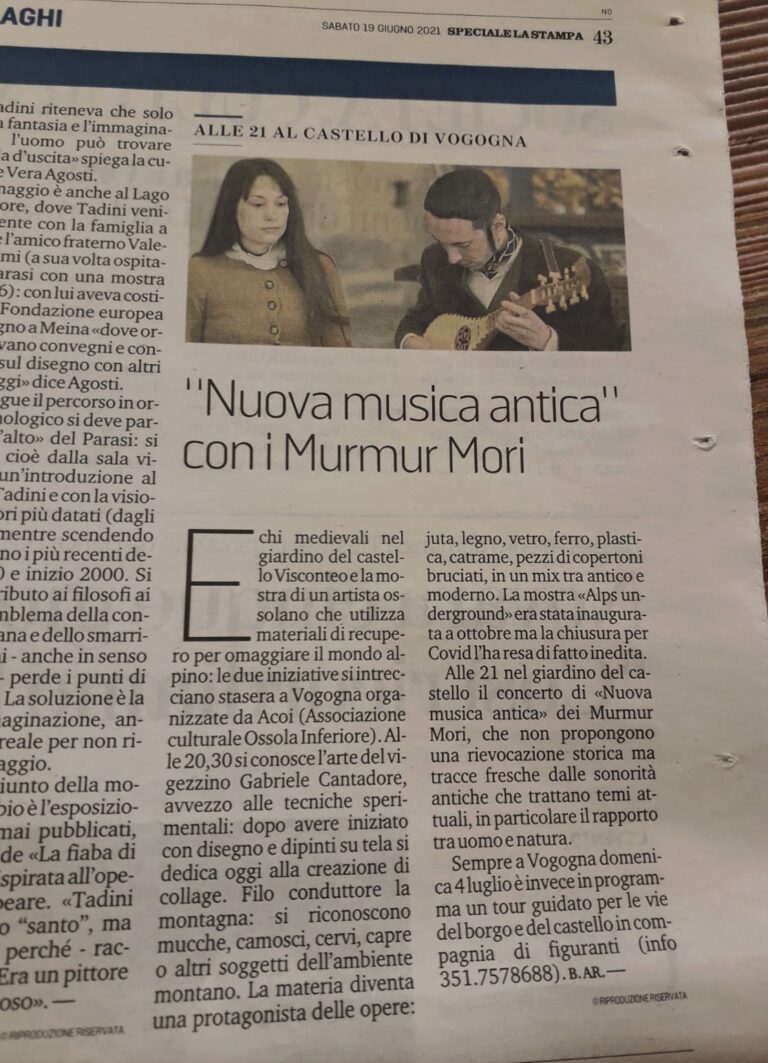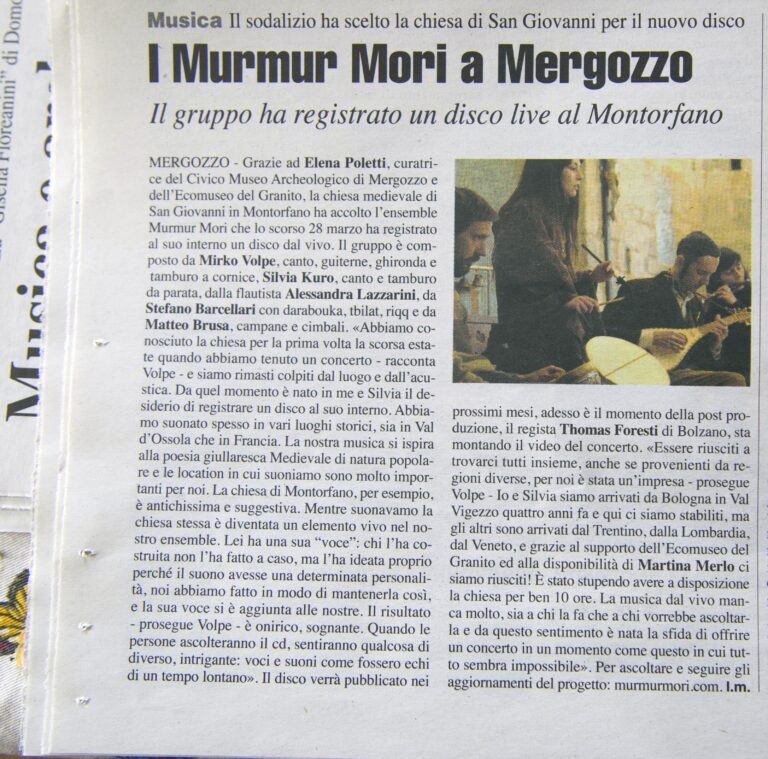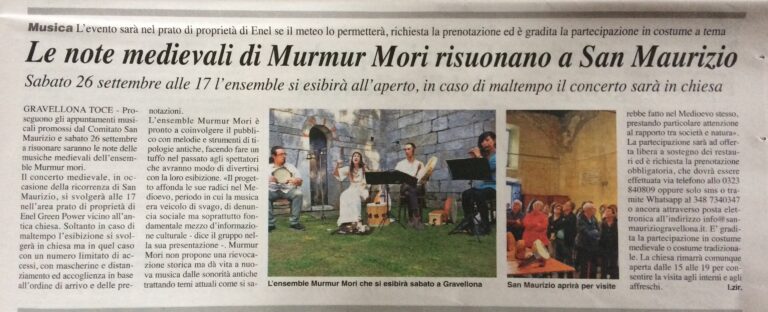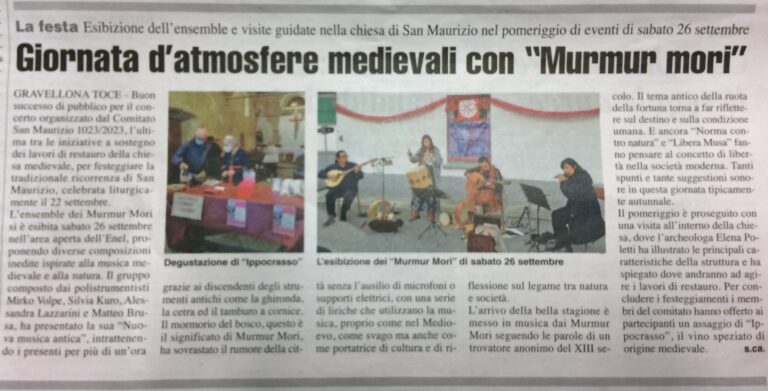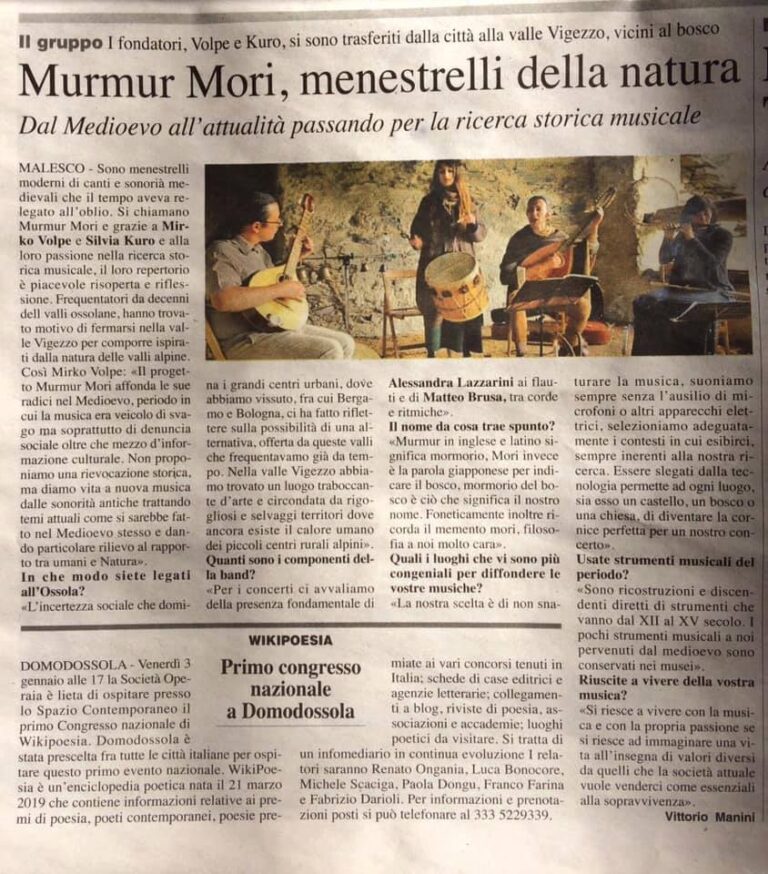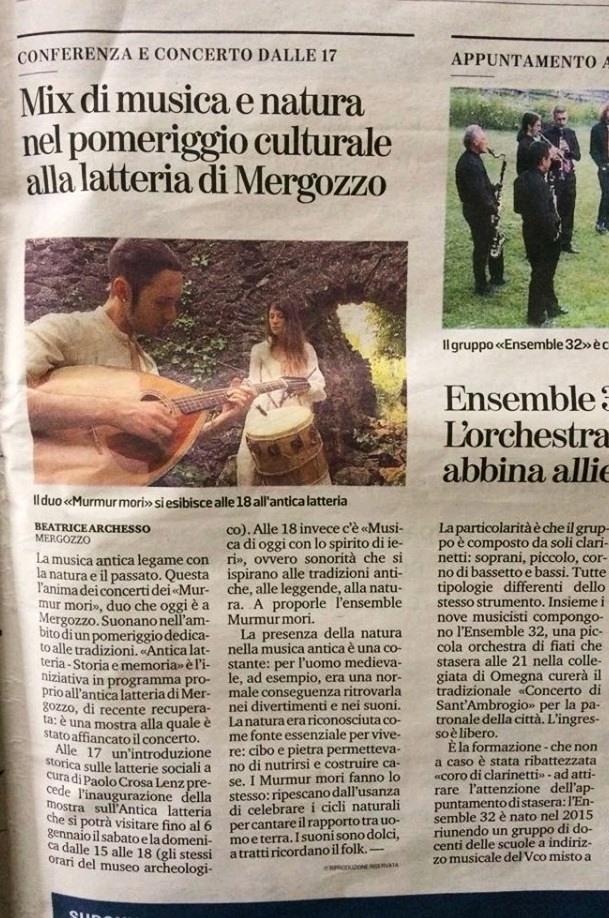RSI - Radio Svizzera Italiana: "Quilisma", interview with Giovanni Conti
[...] And in the second part, in the reverberated light of the refectory, the Italian quintet Murmur Mori prolonged the enchantment, by reviving, with a stunning mixture of grace and modernity, the era when the Italian troubadours and trobairitz sang in the Provençal language... I had the impression of seeing the incarnate translation of the title under which Patrick Boucheron placed these Matinales that he has the pleasure of designing with us: CONTEMPORARY MIDDLE AGES. [...] Abbaye de Noirlac
[...] the audience were able to listen to songs and music played on replicas of ancient instruments. The lyrics told stories with often amusing contents, such as the prayers of two Bolognese women who pray for the sinking of ships carrying flax, preferring that only those with wine dock or the dialogue between the divinity Love and the troubadour Peirol who does not want participate in the Crusade. Lots of humor, both in the lyrics and in the very gestures of the singers and the narrator. To be noticed the musical attitude, for example the symphonia worthy of a medieval Jimi Hendrix. [...] Le Dauphiné Libéré
"In the panorama of recently formed musical groups, the Murmur Mori ensemble stands out for its originality, an Italian group that has also attempted some of the Codex lyrics. The songs are those made known by Orff, Fortune plango and O Fortuna (CB 16, 17), both in the CD Sorte (2020) and in Concerto a Montorfano (2021) - but the music is new and, although composed today, intends to recreate the ancient atmospheres. The interesting element is that, in addition to the choice of instruments and adequate performance techniques, the group works widely on texts transmitted without music. Their creative intervention might appear "other" than early music ensembles, and in fact it is, but in a stimulating direction it is fidelity to a melody (more often absent) that allows us to give life to ancient texts, the most effective operation that can be done today is to carry out a restitution that becomes a medium for understanding the past, penetrating the meaning of the texts, evoking the social context, outline the scenario in which they were created and spread."
From the book: “Carmina Burana, una doppia rivoluzione” (Carocci 2024)
Figure montante de la scène italienne, l’ensemble Murmur Mori fait revivre de manière singulièrement incarnée cette époque – les XIl° et XIIl siècle – où la langue provençale dominait l’Occident, et en particulier les airs des troubadours et trobairitz d’Italie et de France. Journal de l’Abbaye de Noirlac
"An opportunity to bring the Slovak public even closer to the richness and creativity of early Italian music, which recalls that of our language, which is also constantly evolving to keep up with the times but at the same time deeply linked to its origins" Catherine Flumiani, Ambasciatrice d’Italia in Slovacchia
"Canzoneta, va!" is an interesting program: the relationship between adaptation, invention and reconstruction of ancient melodies is well balanced and well done. Murmur Mori is an interesting project, which must continue along this path.
–
"MURMUR MORI ensemble takes medieval music with joy and energy, it is a good way to sing of love which hasn't really changed in its most natural pillars from the Middle Ages until today.
Wikipedia
"I have played early music for a very long time, I had the great privilege of studying together with Thomas Binkley. I am very sensitive and honestly very knowledgeable about medieval music and Murmur Mori's music sounds credible, real to me! Thank you for the energy and the precious time dedicated to bringing this music to life." cherylannfulton.com
"What's your idea about women in the Middle Ages? Helpful vestals easy prey of religious scruples? The Bologna Memoriali give us a direct grip on the amusements of the women of the people, delivering a ballad to the eternity of the registers, 𝑃𝑢𝑟 𝑏𝑖𝑖 𝑑𝑒𝑙 𝑣𝑖𝑛, 𝑐𝑜𝑚𝑎𝑑𝑟𝑒 , which immortalizes the ventures of two cummers: the two women, from tavern to tavern, drink wine and eat capons, from stage to stage they urinate on street corners and curse the sailors who unload lots of linen on the port - may they only unload wine ! -: the two of them do not have any desire to go back to weaving, wefting and spinning. Today the ballad, placed in the Memoriale 47 of the notary Anthonius Guidonis de Argele, is revived thanks to the mastery of the Murmur Mori ensemble and the pearly voice of Silvia Kuro." Università di Bologna, progetto MemoBo
"I listened to Sorte travelling on the Cathar castles' route of the Corbières. Beautiful ballads and poems concealing a great energy behind their tranquility and tenderness. Norma contro Natura it's the song I preferred the most. This record is like a joyous breath of fresh wind." Wikipedia
I appreciated Murmur Mori's research effort on a subject that garners a lot of interest from a historical and literary point of view, but which is little attended on a strictly musical level. Few are, in fact, the performances that have been produced in the record sector. Moreover, curiously, they are often the work of instrumental and vocal groups of a classical formation. Still, it should be evident that the jongleur song nature is popular. The jongleur as a historical figure is undoubtedly a person of low social class. A man, or in some cases a woman, who conducted an itinerant activity. Theis songs needs a refresh in more plebeian waters, the voices need not eary adaptation to the vocal techniques of the original bearers. Of course, we do not have recordings of their authentic voices, but we can at least study the ones of those who still continue a similar activity today: the few storytelles who still survive, or at least their recordings, can be a profitable subject of study Wikipedia
Thanks for your concert. Through your interpretation of medieval music I understood Saint Francis of Assisi more. I hope you show people something of God's beauty with music.
"I find Murmur Mori's music stimulating and original. I was lucky enough to be a London teenager when Punk exploded in England and I can say that listening to your interpretation of medieval music I thought about the Sex Pistols."
“Folk melodies with a medieval style, from young minstrels looking for a new master to ask to be able to sing their joys, amusements and sorrows in peace. Songs sought after on an instrumental level, excellent as usual texts and vocal parts, in short: fortified with love, it is always an immense joy to listen to their gentle harmonies. "
